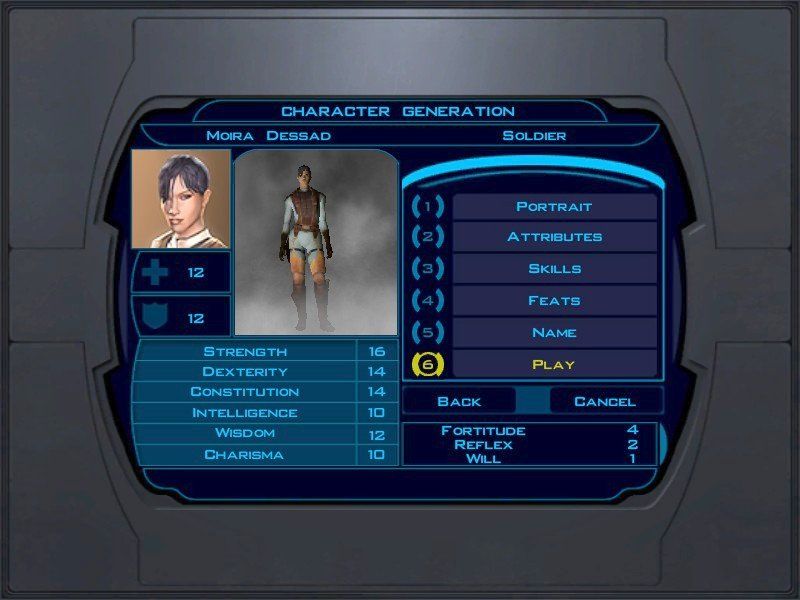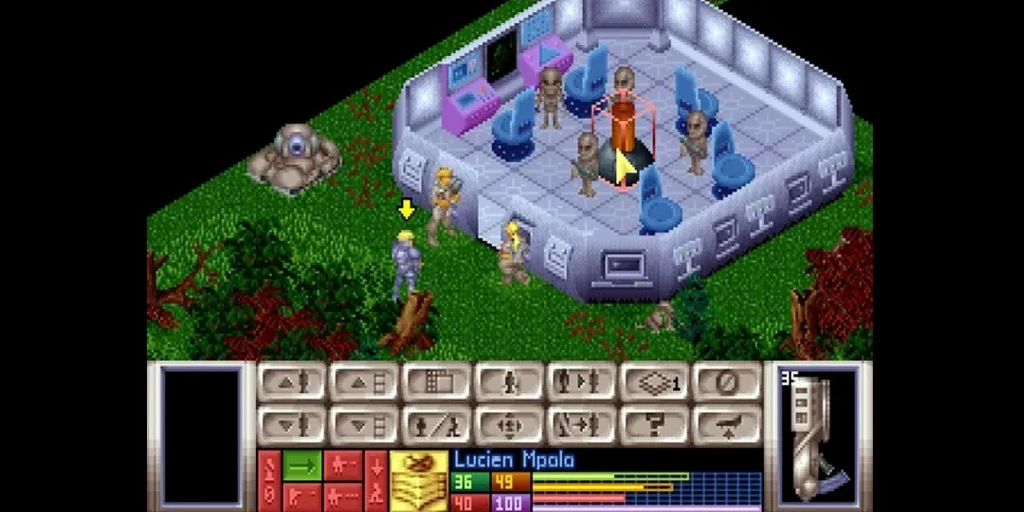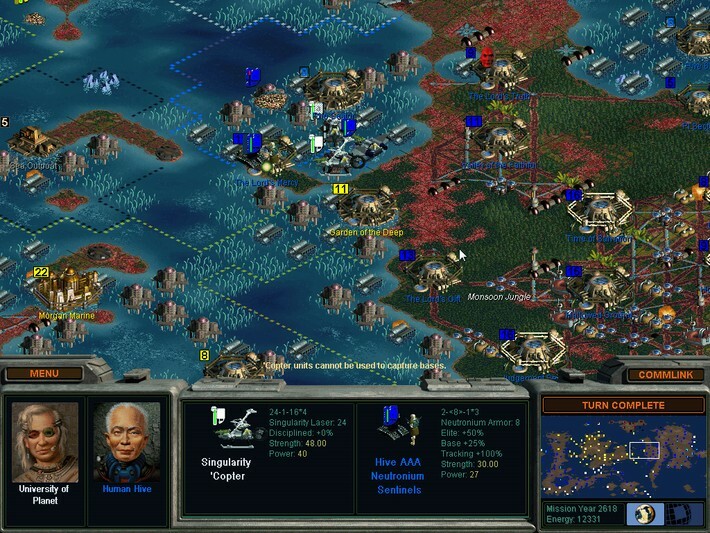Since videolamer has begun the process of following in Buzzfeed’s esteemed footsteps, it’s only natural that we reach for the low-hanging fruit of picking out games we played and telling you to play them. GOG (www.gog.com), briefly branded as Good Old Games, is stacked with tons of games created by incredibly talented developers years ago, most of whom will never see any of the money you spend because the rights have been sold and resold dozens of times over. But at least if you spend money on these 20-year-old games, it will assuage the slight twinge of guilt you might have felt if you pirated them.

Many of these games are more than 20 years old. Some run in DOS/DOSBox, but many have fan patches available. Check the corresponding GOG forum first – there is typically a stickied topic for mods/patches. All of these games are $9.99 or under on GOG, and many go on sale frequently.
Role-playing games
Dark Sun: Shattered Lands – I personally have been meaning to get back to this game for years, having not played it for at least 15. It’s probably the most difficult in this list to get into – rivaling Baldur’s Gate, because it uses a Dungeons & Dragons ruleset, but with many completely different races and classes to choose from. It’s similar to other CRPGs, but the semi-apocalyptic, bleak setting may appeal more than the more common fantasy ones. It’s not a particularly difficult game after the opening segment from what I recall, as long as you read the rulebook and create your characters accordingly.

Fallout 1 & 2 – These are seminal classics that need no introduction, but in case they do, they are post-apocalyptic CRPGs with their own engine and mechanics. Unlike their newer cousins (save perhaps New Vegas), they’re somewhat realistic in that society is re-forming, houses aren’t left undisturbed for centuries, and the 50s parody adds a little flavor but never takes center stage. Wasteland 3 is the most similar modern game. Fallout is considerably easier at the beginning but tougher at the end – since companions can’t be outfitted with equipment, few are capable of journeying for long. While Fallout 2 resolves that issue, it also has a harsh (either combat or stealth heavy) introduction and it’s only after a few hours that it gels into a satisfying rhythm and opens up.
System Shock 2 – Calling this an RPG may be a slight stretch. System Shock is a survival horror game with RPG elements set on a spaceship. While personally I found it too intense to play single-player, there is an excellent multiplayer mode that allows up to 4-player cooperative play if that makes it more tempting to try. Mechanically the game is a little rough, but the atmosphere is particularly good, and still intense in multiplayer.
Arcanum: of Steamworks and Magick Obscura – A steampunk CRPG set in a world where technology and magic(k) are in a cold war of sorts, Arcanum is like a sprawling, more open-ended sequel to the Fallout games (for good reason – many people involved in Fallout worked on Arcanum). Notably in Arcanum you can play as either a technologist – with various crafting specialties or skills – or a magician – with an array of possible schools of magic. You can try to stay neutral, too – each option will feel very different, and you can recruit a variety of followers of each flavor. Arcanum offers both turn-based and real-time combat, and you can toggle between them at any time. It’s a shame that real-time combat is the default, though.

Star Wars: Knights of the Old Republic – This CRPG was rereleased recently for mobile devices, so it may be more accessible to some there. In any case, this is a Star Wars game from Bioware based on D&D 3rd edition, so there are a lot of potential reference points for atmosphere, mechanics and storytelling style. It’s a relatively short, simple story that (at the time) expanded the Star Wars universe a bit. KOTOR is a fun ride, and was made recently enough that it’s more accessible than some of the older CRPGs on the list.
Star Wars: Knights of the Old Republic II – Playing this back to back with the first KOTOR might cause a little whiplash. The core engine is the same, and there is definitely some overlap. The sequel adds a lot of depth to storytelling, adds crafting systems, has more extensive interactions with companions, and explores the idea of neutral / non-dogmatic Force users within the context of Star Wars. It’s a more interesting game than KOTOR, but it is also more janky (a fan-patch helps with a lot of issues but doesn’t resolve them all).
Deus Ex – While the newer Deus Ex games might be easier to get into – this one starts off with an open-ended scenario and little guidance – there’s a lot that is interesting about the first Deus Ex. The open-ended nature of the early missions in particular, various reactions to your approaches (violent/nonviolent), and a lot of interesting side content stand out even in the modern, open-world heavy landscape.
Strategy games
Master of Magic – Starting off our Microprose kick is one of their early Civilization-likes, Master of Magic. The version on GOG includes all community patches, so it’s a reasonable place to start. You play as a wizard, starting off with a small village. There is no story mode, nor indeed really any story – every game is randomly generated and your goal is always to banish all other wizards from the map. Instead of technology research, you research spells in your chosen elemental domain(s). The customization options for wizard creation and picking your faction’s starting race offer a massive array of possible strategies. Expect alliances not to last very long. Build up cities, recruit and arm heroes, and research powerful spells to bend the world to your will.

X-Com: UFO Defense – Another Microprose classic, X-Com places you in charge of a secret organization dedicated to protecting Earth from alien infiltration and invasion. You choose where to build your base, and as you protect (or fail to protect) each nation, they adjust their yearly funding accordingly (or pull out of the program entirely – presumably infiltrated by the alien threat). Much of the game takes place in a tactical mode as you thwart alien invasion of cities or explore wrecked/landed alien spacecraft, but there’s a fair amount of base building, planning, and spaceship detection interspersed. It’s an incredibly hard game if you are playing without knowledge of what tech/production trees are useful, or what kind of resources to stockpile vs. sell. It’s clearly meant to be played multiple times, and you are expected to fail. While the modern XCOM games are spiritual successors, the original UFO Defense offers much more freedom and is freeform simulation, rather than XCOM’s rote “pick one of these three things to do” followed by the occasional base building option.
Master of Orion 2 – Microprose’s second “space 4X” civ-like is one of the seminal 4X games. It offers an impressive array of race customization options that feel meaningful, heroes that offer benefits to fleets or planets, and a tech tree that (for most races) requires picking one of two or three options – forcing tough choices about prioritization. Ship customization is a standout, although it’s easy to automate if you’re not interested. I’ve played many games that try to recapture the magic of Master of Orion 2, but not one has managed to do it.
Lords of the Realm 2 – This could be thought of as a kind of predecessor to the Total War games. Much of the game takes place on a strategic map, where you manage your provinces and move armies. When your armies come in contact with enemy armies or castles (or vice versa), the game switches to a tactical RTS mode, where you manage your units as they seek to defeat the enemy. The AI is not particularly good, but gets substantial advantages later in the campaign, so much of the fun is in overcoming superior forces (particularly when the enemy besieges your castle, and you get to make use of your defensive ramparts and boiling oil). In the strategic mode, random events can interfere substantially with your food intake, so careful diversification between crops and cows (or good luck) is important later in the campaign.

Sid Meier’s Alpha Centauri – After Civilization 2 came out, several key staff left Microprose to form Firaxis, which then resulted in this Civilization successor. Its near-future starting point and musing on future technology and society stand out among games that don’t bother with the “whys” or “hows” – it’s a 4X with the bonus of a driving plot, which is a respectable science fiction story inspired by the classics. The writing also adds a lot of atmosphere – diplomacy dialogue is totally different for each faction, and the technology and improvement descriptions are a joy to read. Playing each faction feels very different too, as they can be tweaked in different ways using a government bonus system that will feel intuitive after a few uses. I would recommend playing your first few games with only the base factions, but the GOG version also includes the (incredibly hard-to-find, in the ‘00s) expansion pack, Alien Crossfire. The relatively recent Beyond Earth was an attempt to recreate some of Alpha Centauri’s magic, but it dropped the ball on story and atmosphere.
Roller Coaster Tycoon – This game is a pretty chill strategy/simulation that allows you to design your own roller coasters to try to make something more exciting (or nauseating) than the last one. Money typically stops being a problem within the first year or two of game time – the main challenge comes from trying to fit the most recent goliath coaster in between all the other ones you’ve already made. It’s a pretty standard sim game otherwise – you have to keep your park visitors happy, safe, and fed. It’s also been ported to mobile devices, and stands out among a bajillion idle games masquerading as “tycoon” sims.


[…] Continued from Part 1 here. […]